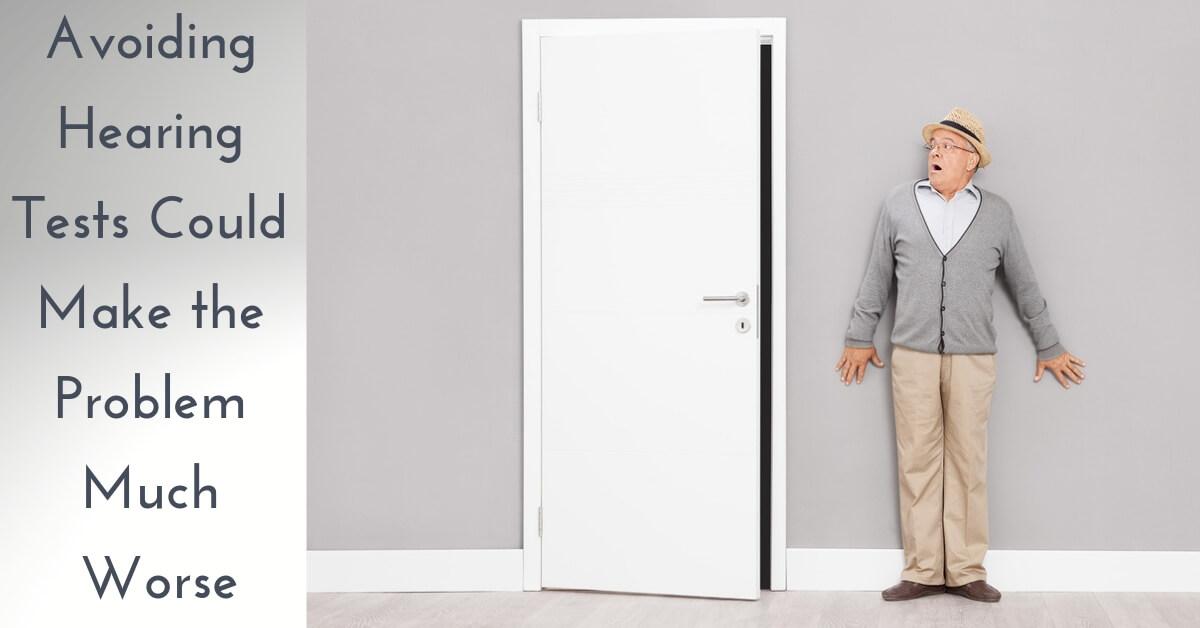
The tricky thing about hearing loss is that more often than not, people do not realize they are experiencing it. We can accommodate our hearing difficulties by asking people to repeat themselves in conversation or turning up the volume – but “getting by” by ignoring your hearing loss is risky on so many levels. Untreated hearing loss is related to a variety of medical and emotional problems. There’s no need to live with untreated hearing loss – it all begins with a hearing test. To schedule a hearing test, call Swift Audiology today. Hearing tests are private and painless and, getting treatment for hearing loss is a smart thing to do. It can ward off future health and other problems.
Hearing Loss and Dementia
If you are aged 60 or older, the risk of dementia increases for those who have moderate and greater hearing loss by 36%. According to numerous studies done by major university medical schools, older adults with hearing loss are more likely to develop Alzheimer’s and dementia compared to those with normal hearing. Additionally, it is more prevalent in men. Men with hearing loss were 69% more likely to develop dementia than those with no hearing issues.
The studies also found that the risk is elevated as a person’s hearing gets worse. Those with mild hearing loss almost twice a likely to develop dementia compared with someone with normal hearing. Moderate hearing loss escalates the chances of dementia as three times those of another with normal hearing and those with severe hearing loss are five times as likely to develop dementia. Mild hearing loss is rated at 25 decibels. For every 10-decibel increase in hearing loss, the risk for dementia jumps by 20%.
Untreated loss risks
Unlike vision loss, which people typically treat immediately when the problem starts, people push off getting their hearing loss treated – for some, as long as a dozen years of so. Untreated hearing loss has been associated with depression, concentration, and memory problems and could lead to relationship difficulties with family, friends and co-workers.
Not treating your hearing loss has a whole series of negative ramifications including: depression, social isolation, cognitive decline, income disparity, impaired memory, being misjudged or mischaracterized because you don’t seem to be paying attention, safety concerns, forgetting what nature sounds like, greater chance of falling, missing a grandchild’s first works, missing a loved one whisper “I love you,” not hearing a cry for help, lower quality of life and increased anxiety.
Over time, the lack of stimulation to certain parts of your brain because of hearing loss can cause what some researchers refer to as brain shrinkage. The reduction in stimulation actually impairs the brain’s ability to process sound and recognize speech. The more speech recognition deteriorates, the more difficult it becomes for that part of the brain to recover. Studies show hearing devices re-activate much of those parts that slow down or shrink – but not all of them.
Spotting the Signs of Loss
If you are experiencing several or even one of the following, it’s time for hearing evaluation at Swift Audiology. Conversations may sound muffled, as though your ears are stuffed with cotton or you are underwater. You have difficulty processing and understanding consonant sounds (vowel sounds are at a lower frequency and are easier to hear). Consonant sounds are at a higher frequency, typically where hearing trouble starts. You find hearing difficult in busy places with a lot of background noise, like a restaurant. You are asking people to repeat themselves or talk more slowly more and more. You keep turning up the volume on the TV and other people are starting to complain its too loud. You have trouble hearing and understanding people on the phone. Your loved ones may even tell you that they think you have a hearing problem.
Hearing loss is more common as you age. Your exposure to noise may have damaged the tiny hair cells in your ears that help send sound to the brain to be processed. In addition, reduced blood flow which occurs as a result of aging may deprive the cells of enough blood flow to damage them. High blood pressure and diabetes associated with aging also can exacerbate hearing problems and hearing loss.
Don’t put off a hearing evaluation
While studies about hearing loss may seem grim, conclusions find that people who get hearing aids and wear them experience benefits in overall quality of life. So, schedule that hearing exam at Swift Audiology and reconnect with the sounds of your life!
